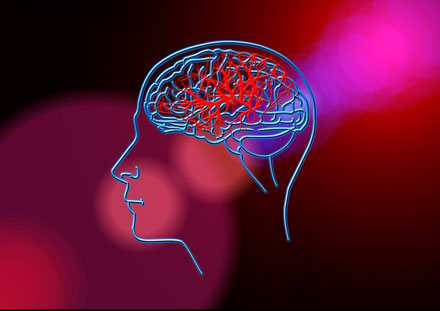Has Your Husband Had a
Stroke or Brain Injury?
Do you feel disconnected, lonely, and overwhelmed?
Does your husband become nasty and verbally abusive?
Do you feel that your husband is no longer the man you married?
After a brain injury nothing is the same
A stroke or accident that caused a traumatic brain injury can leave both survivor and carer feeling vulnerable, uncertain, and scared. The world as they knew it has been taken away from them in an instant.
You used to know what to expect!
But now there’s confusion. You’re all over place not sure what to do for the best. Everything has changed. It’s confusing, scary and frightening. You don’t know which way to turn.
Perhaps worse than that is the change in your husband. You’re often surprised and even shocked at what comes out of his mouth. Sometimes his comments hurt you – a lot.
But, as his carer, you have to put on a brave face.
I had to put my fears and uncertainties aside and put on a brave face for my husband.
Brenda – Caregiver
From the moment my husband collapsed, the trip to the hospital, and then the hours, days, and weeks of hospital visits, all while I was filled with the fear of the unknown.To reduce the stress on my husband, I had to put my fears, uncertainties and feelings aside and put on a brave face.In a flash my world had collapsed and the life my husband and I had lived and hoped for was gone forever.
I love my husband but it was tough. For years, and like my husband, I experienced isolation, loneliness, and depression. I didn’t have a life!
But then I discovered the ‘Reconnect to Life Program’ and that has made a huge difference for both my husband and me. We still have fights but we’re learning better ways to deal with issues.
Brenda
Caregiver
My husband and I were having a big argument and all of a sudden I said stop. Time out. let’s take a deep breath. This isn’t getting us anywhere.
How can we approach this differently?
Before I did the the Reconnect to Life Program the argument would have gone on for days. Now I know a better way and life is more bearable.
In a flash my world as I knew it collapsed and the life my husband and I had lived was gone forever. I love my husband but it was tough. For years, like my husband, I experienced isolation, loneliness, and depression. I didn’t have a life.
But then I discovered the ‘Reconnect to Life Program’ and that has made a huge difference for both my husband and me. We still have fights but we’re learning better ways to deal with issues.
Brenda Roher – Caregiver
Your relationship has changed
The familiar comfortable way of communicating you had with your husband has gone. It’s like you are married to a stranger and now you have to start again and reconnect with him. This means creating a new normal.
But how?
There is light at the end of the tunnel!
Reconnect to Life Program
Teaching caregivers how to care for caregivers
Caregivers – the silent victims
Caregivers are the silent victims of brain injuries and strokes.
When their husband makes an unfiltered comment she feels real emotional pain.
They retreat to a park or the back porch and weep. Often, friends and extended family mean well but offer inappropriate solutions and advice that the caregiver doesn’t want or need.
Caregivers just want to be heard
The only way to give them genuine support is to listen to their story deeply.
And that is what we do. We show carers how to listen deeply. This has a two-fold benefit.
The carer’s relationship with her husband will likely improve
She will be able to listen deeply to other caregivers who are desperate for someone who understand what they are going through.
Emotional pain
Emotional pain can make you anxious, lose sleep, and be awful to the people that you love. Both survivor and carer are suffering emotional pain.
This joint emotional pain forces even the strongest relationship back to basics. They must rebuild their relationship and reconnect to one another and life. One of the core human needs is for our lives to have meaning, to be relevant. We want our lives to have meaning, value and purpose. Every person on the planet wants to be valued and respected.
Deep listening is an essential tool for carers.
What is Deep Listening?
Diana Raab, Ph.D. writes, “It’s been said that one of the most common reasons why people see therapists is to have their stories heard.” Not just heard, but deeply heard. Understood. Cared about.
And deep listening is more than active listening. Deep listeners are focused on understanding and empathizing with what their audience is communicating. They know when to ask deep questions that further the conversation, and when to sit back and listen without their own ego trying to insert itself. Raab continues,
“One study conducted by Faye Doell (2003) showed that there are two different types of listening: ‘listening to understand’ and ‘listening to respond.’ Those who ‘listen to understand’ have greater satisfaction in their interpersonal relationships than others. While people may think they might be listening to understand, what they’re really doing is waiting to respond.”
Roger Kallan defines deep listening. I define deep listening as suspending judgment and being fully present with another person to understand his or her experience or point of view. Deep listening involves hearing more than the words of the speaker but taps into the deeper meaning, unspoken needs, and feelings conveyed. It is something that is done with the heart as well as the mind. https://www.rogerkallen.com/the-art-of-deep-listening/
Both survivors and carers can lose their sense of identity. I’m the person I was and I don’t know who I am now.
Help them reconnect with Deep Listening.
Reconnect to Life offers eleven Communication tools that…
- Reduce misunderstanding and conflict
- How to deal effectively with criticism
- How to listen for the hidden message
- How to listen for what is not being said.
The Foundation of the Relationship has Been Challenged…
Every human wants their life to mean something. When you listen deeply you demonstrate that they have value and that their life has meaning. Learning to Listen Deeply helps couples to rebuild the foundation of the relationship that has been so sorely tried.
There is plenty of advice as to what you need or must do but very little on how you can do it.
Copyright 2022, Reconnect to Life Program – Disclaimer
Insert Image


